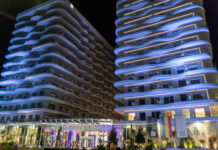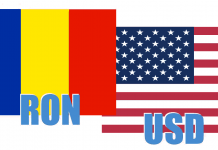
The finance minister of France, who is fond of literature, is proud to have inspired the writer who portrays him as a sincere and gifted presidential candidate in his latest novel, “Anéantir”.
One could almost speak of a stunt. In the midst of the presidential campaign, Bruno Le Maire is gearing up for the new publishing season in a very offbeat way. A literary debut, but not as an expected author: as Emmanuel Macron does not want his team to publish any books before the presidential election, the finance minister had brought forward to November 2021 the publication of his twelfth book, “Un éternel soleil” (“An Eternal Sunshine”), — his fourth book since the beginning of the presidential term.
No, the finance minister makes this triumphant return from his holiday as the hero of a novel. In Michel Houellebecq’s little “Human Comedy” (he places Balzac above all others), the figure of a minister was missing. That’s a done deal in his latest novel, a powerful and sad book, published by Flammarion on January 7. Bruno Le Maire is the model for one of the main protagonists of “Anéantir” (“Annihilate”), Bruno Juge (almost a Balzacian name). What a nice Christmas present for a minister who is fond of literature (“Richelieu wrote while acting”), and who likes to spend time with writers (“Jean-Christophe Rufin, Sylvain Tesson, Philip Roth when he was alive, Marie Darrieussecq…”)! On December 22, in his office at Bercy, he blushed more than usual. “To find oneself in this way in what is perhaps Michel’s greatest novel…” Pride and joy filled his pale complexion and his cheeks.
He had prepared himself. “One of the characters is called Bruno, but he is a former student of the Ecole Polytechnique,” Houellebecq had mischievously told the former student of the elite Ecole Normale Supérieure and an expert in Proust. Now that he has read the book, he does not regret “for a second” opening the doors of his bedroom or the ministry canteen to this writer who likes to document each of his novels like a naturalist. It doesn’t matter that Bruno Juge broke up with his wife after twenty-five years of marriage or that a strange pirate video mimics his virtual decapitation since this double of Le Maire is first and foremost “a good guy”, austere, hard-working, “gifted”, a pedagogue, never “cynical” (contrary to the “President”), capable of reciting verses by Musset in the middle of the night. And presidential. Bruno Juge is a romantic hero who still believes in action and places his ambitions (resurrecting the dynamism of the “thirty glorious years”) behind the general interest. “Finally, we have a positive portrait of a politician,” says the minister in his office.
Dinner and discussions
The two men met in 2006. “Always take care of writers” is the motto of Bruno Le Maire, who headed the cabinet of Dominique de Villepin when Michel Houellebecq needed a hand. “A custom-duties issue involving a dog,” recalls the minister, who solved the problem and then received the literary man at Matignon. Again in 2011, an issue arose because of Michel Houellebecq’s dog. The novelist’s Welsh corgi, Clément, died in Ireland (for Houellebecq, it was unquenchable grief). And this time, the remains had to be repatriated to the animal cemetery of Asnières, in the Hauts-de-Seine. The minister understood that animal love is in his work the counterpoint to the dehumanization of society and the catastrophe of love, two obsessive hauntings.
Since then, they have exchanged emails and, they have crossed paths gladly: in the private apartments of the minister where Michel Houellebecq comes for dinner; at the Elysee, where the writer received the awarding of the Legion of Honor for writing and; last spring, during an epic evening on the track of the Cirque d’Hiver where young traditionalist Catholics of the Eveilleurs d’Espérance and the weekly « Valeurs Actuelles » organized a show on Europe… “What is touching for me,” confides Le Maire, “and I experience it as a true sign of friendship, is that I find in ’Anéantir’ the traces of discussions of several years with him.” They have had literary discussions on German romanticism, the writers Theodor Fontane and Rilke (to whom Houellebecq addresses several discreet winks from the first pages of the novel, believes the minister). Economic discussions, too. “In ‘La Carte et le Territoire’ (Flammarion, 2010), Michel walked us through a France that had turned into a museum, into a Disneyland. It had become the country of tourism. But by a sort of Proustian process of surprise and unveiling, Bruno Juge believes here in the benefits of industrialization,” says the minister of Finance, recently converted to saving factories. “Like Proust, Houellebecq is a voluntarist author.”
He does not want to see signs everywhere, but still: In “Paul” (Gallimard, 2019), the minister-writer accompanied his great friend, struck down by a brain tumor, until his last moments. In “Anéantir,” Bruno Juge helps the narrator (a civil servant in the budget department and suffering from cancer of the tongue) in his way. As Bruno Le Maire is convinced that the writer who won the Goncourt Prize in 2010 did not create this “game of mirrors” by chance, he is almost astonished by this vertiginous story in the story. “Really, it’s a very disturbing thing to become the character of an author who will mark the 21st literary century like Proust and Céline did in their time,” he says. “Michel deserves the Nobel Prize…” He picks himself up, stands up, and cautiously clarifies: Beware, Bruno Juge is not him, Bruno is someone else, “a character all to his own, who belongs to literature and especially to Michel Houellebecq.” Through the bay window of the 6th floor of Bercy, a yellow light haloed the pillars of the Austerlitz bridge, exactly as in the novel.





























